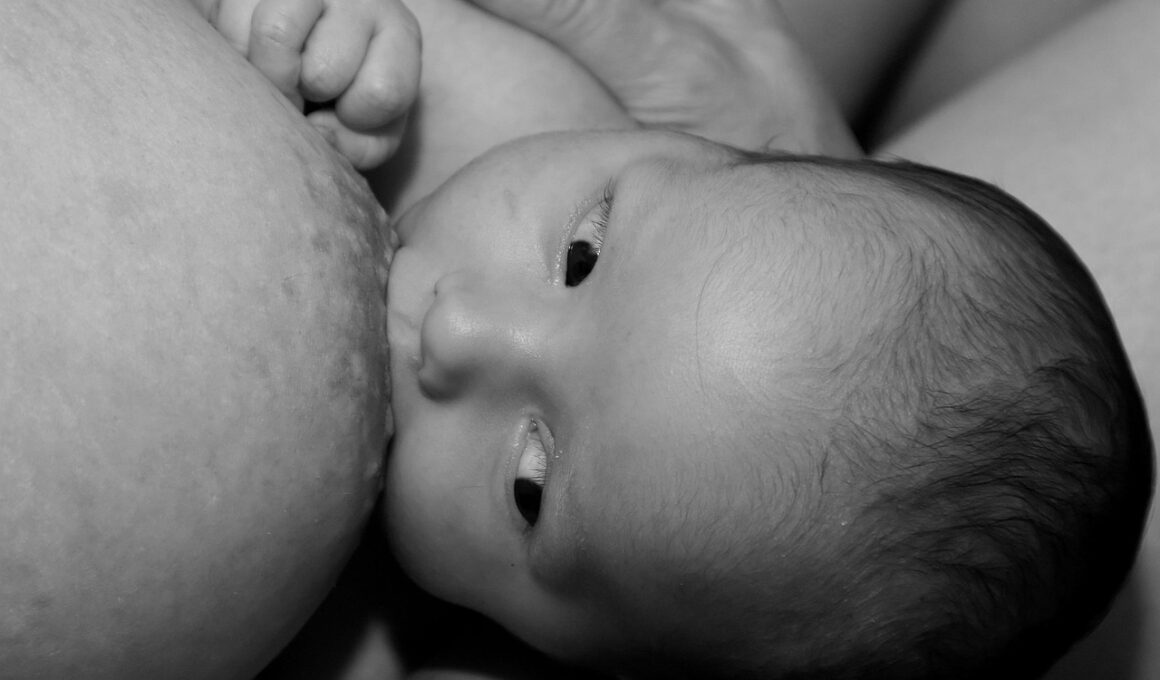The Truth About Postpartum Belly Binding and Fitness
After childbirth, many women experience changes in their bodies, both physically and emotionally. With these changes often come numerous misconceptions surrounding postpartum fitness and methods such as belly binding. Postpartum belly binding has gained popularity for its purported benefits, including abdominal support and reduced waist size. However, not all claims are scientifically substantiated. One common myth is that belly binding immediately flattens the stomach. In reality, it merely compresses the abdomen, providing a feeling of support rather than a true transformation. It’s vital to understand that healing takes time, and the body reshapes gradually. Additionally, excessive binding may hinder mobility which is crucial for recovery. Incorporating gentle exercises and proper nutrition aids in restoring fitness levels more effectively over time. Moreover, some women find belly binding uncomfortable, making it important to listen to one’s body. Therefore, while incorporating a belly binder can provide a sense of support post-delivery, it should complement a comprehensive fitness plan rather than serve as a sole solution. Emphasizing patience, understanding, and a balanced routine is essential for anyone navigating postpartum challenges.
The Benefits and Drawbacks of Belly Binding
When considering postpartum belly binding, it is essential to evaluate both the benefits and drawbacks. Some practitioners argue that belly binding can provide necessary support for the abdominal muscles while they are still healing from separation during pregnancy. Support is crucial: women need stability when they begin physical activities again. However, other healthcare professionals express concerns that binding can lead to dependency, where the body relies on external support rather than rebuilding core strength naturally. Additionally, binding too tightly might restrict movement or breathing, potentially causing discomfort. Another misconception is that binding significantly impacts weight loss, which isn’t entirely accurate. Weight management largely revolves around diet and overall lifestyle choices rather than reliance on a binder. Therefore, it’s crucial to discuss individual goals with healthcare providers rather than solely depend on techniques like binding. Gradually introducing core-strengthening exercises, using proper nutrition, and mental well-being techniques can enhance overall postpartum recovery. Understanding both sides allows new mothers to make informed decisions regarding their health, ultimately achieving a successful postpartum recovery.
Many postpartum fitness myths revolve around the idea that intense workouts are the only way to regain pre-baby shapes. This misconception can create unnecessary pressure on new mothers. Gentle exercises such as walking, stretching, and postpartum Pilates can offer significant benefits by easing the transition back to regular activity. Engaging in low-impact activities promotes blood circulation and helps alleviate feelings of postpartum fatigue without overwhelming the body. It’s crucial not to rush back into high-intensity workouts right away, as the body needs time to adjust. Gradually increasing activity levels assists in rebuilding strength while diminishing the risk of injury or other complications. Listening to one’s body is essential; each woman’s journey is unique, and pushing too hard can lead to burnout or discouragement. Supportive communities and professional guidance, including physical therapists, can provide individualized approaches to fitness. Balancing fitness with self-care, emotional support, and rest can greatly facilitate postpartum recovery. Emphasizing a holistic approach can empower new mothers, leading to improved mental and physical well-being.
Core Strengthening After Pregnancy
Rebuilding core strength after pregnancy is fundamental for many postpartum women. Understanding that recovery isn’t solely about aesthetics is vital; it’s about regaining functional strength and stability. The abdominal area experiences significant strain during pregnancy, requiring gentle yet effective exercises to restore strength safely. Techniques like pelvic floor exercises, deep belly breathing, and gradually progressing to abdominal workouts can work wonders. Engaging in these activities helps enhance overall core strength while preventing issues such as diastasis recti, a common concern among new mothers. Seeking guidance from fitness professionals or postpartum specialists is crucial to developing a safe exercise regimen tailored to personal needs. They can guide proper form, ensuring that exercises are performed safely and efficiently. Moreover, integrating core strengthening into everyday tasks encourages women to remain active without specific workout times. Simple actions such as engaging the core when lifting or standing can contribute to overall recovery. Education about how to properly engage the core during various movements forms the foundation for a strong postpartum recovery journey.
Nutrition plays a pivotal role in postpartum fitness, often overshadowed by physical activity myths. It’s essential to recognize that proper nutrition supports not only recovery but also energy levels for new mothers. A balanced diet rich in nutrients can significantly impact overall well-being during postpartum. Including foods high in protein, healthy fats, and fiber can assist in healing while providing sustained energy to manage daily responsibilities. It’s a common misconception that restricting calorie intake is the best method for weight loss postpartum. Instead, nourishing the body with wholesome foods fosters healthy weight loss naturally over time. Hydration also is crucial; drinking plenty of water aids digestion and helps in metabolism regulation. Additionally, incorporating colorful fruits and vegetables provides essential vitamins and minerals that support healing processes. Consider consulting with a nutritionist experienced in postpartum care to develop a personalized plan conducive to each mother’s unique situation. By taking a holistic health approach combining nutrition and empowerment, women can work toward achieving their fitness goals.
Finding Support and Community
After childbirth, finding support and community can greatly alleviate the pressure of postpartum fitness myths. Connecting with others who share similar experiences can provide encouragement and perspective. Online forums, local support groups, or fitness classes specifically tailored for postpartum women can create a nurturing environment. Having relatable experiences shared among mothers helps demystify concerns about bodies and fitness journeys. Engaging with fitness professionals who understand postpartum challenges fosters a sense of trust and allows for individualized attention, which can empower mothers to prioritize health. It’s crucial that new mothers realize they’re not alone in their struggles; the journey is often filled with ups and downs. Creating friendships within these community spaces can inspire shared motivation and promote consistency in fitness practices. Additionally, attending workshops or classes focused on maternal health, nutrition, and fitness offers valuable resources. Many communities have resources specifically aimed at helping women navigate this stage of life. Support systems built on understanding, encouragement, and shared experiences are invaluable to new mothers as they embark on their fitness journey.
Emotional wellness is as essential as physical wellness when discussing postpartum recovery. To overcome misconceptions related to fitness, new mothers must recognize the emotional aspects of their journey. Many may feel overwhelmed or pressured to look or act a certain way postpartum. It’s vital to address these feelings, fostering a positive mindset around bodies and fitness goals. Incorporating activities such as yoga or meditation can provide significant benefits, helping to reduce anxiety while enhancing mental clarity. Practicing mindfulness encourages self-love and acceptance, crucial components of overall health. Seeking professional support when it comes to mental wellness is equally important, as some mothers may experience postpartum depression or anxiety. Addressing the multifaceted nature of postpartum recovery supports both mental and physical health. Finding joy in movement rather than viewing it as a chore plays a role in boosting motivation. Ultimately, understanding that fitness is a personal journey rather than one dictated by societal standards fosters confidence. Encouraging a mindset geared toward health and emotional well-being will enhance the postpartum experience for mothers everywhere.


